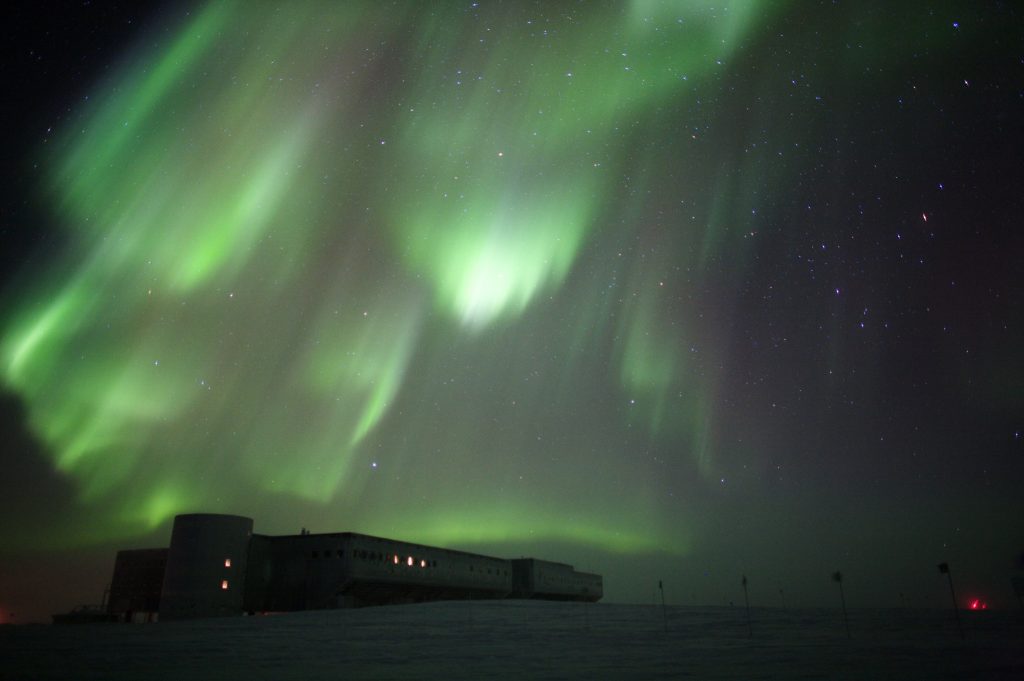Collaboration in the Hunt for Dark Matter

In the search for dark matter, experimental collaborations are regularly made of of many individuals from institutions and countries across the globe. Now, two dark matter collaborations have combined their results to set new parameters on what dark matter could be. PICO, the bubble-chamber dark matter detector at SNOLAB, is a direct-detection experiment that is designed to capture dark matter interacting with its target material. PICO is sensitive to faster dark matter particles. IceCube, a neutrino detector built into the Antarctic ice, is an indirect-detection experiment that is designed to detect the neutrino signal created by dark matter annihilation in the sun. IceCube is sensitive to slower dark matter particles compared to PICO.
By combining results from the two experiments, PICO and IceCube are better able to improve the global understanding of what dark matter isn’t, bringing us one step closer to determining what it is.
Read the full release from IceCube here: https://icecube.wisc.edu/news/view/689